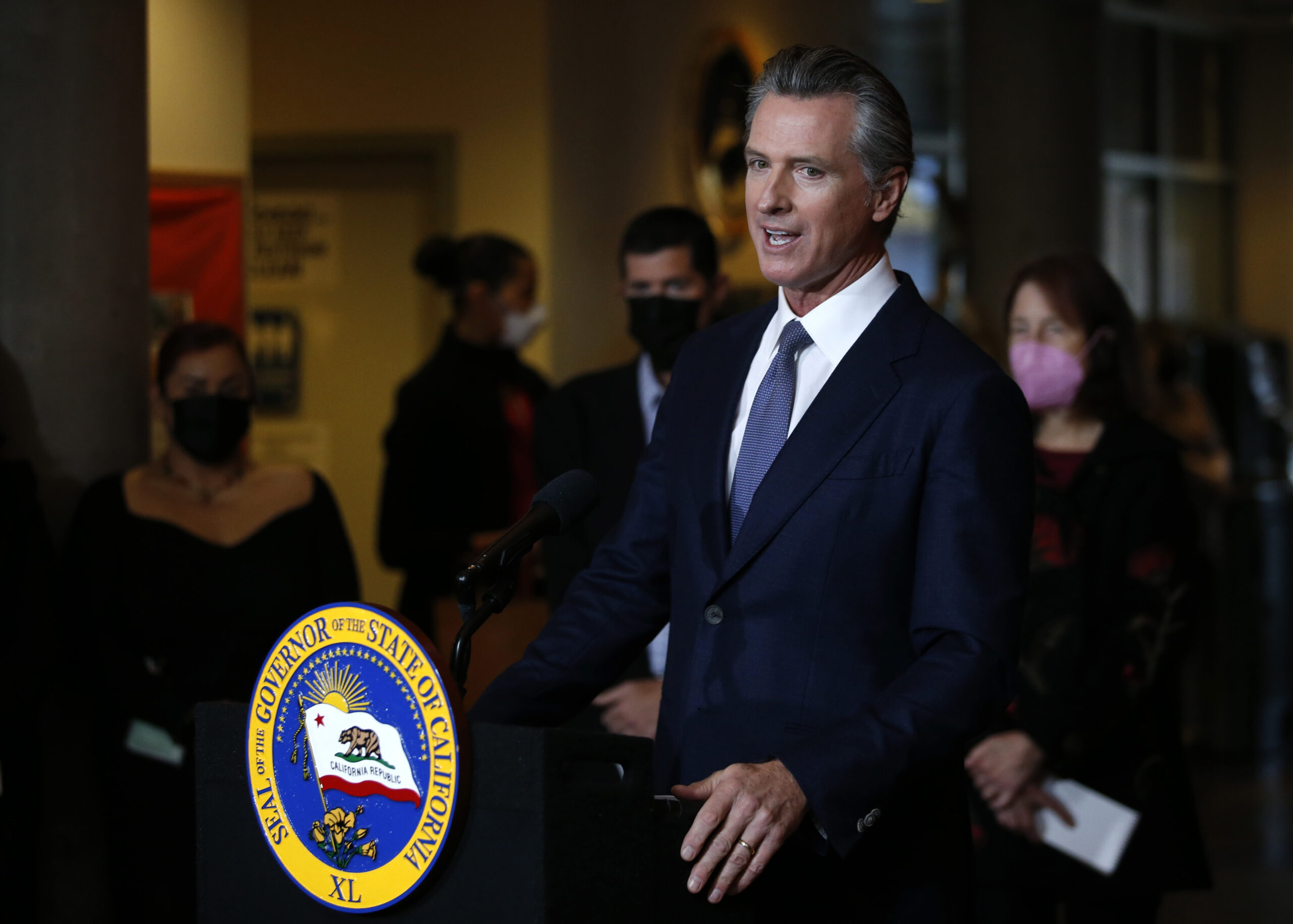Californians have spent the last two years learning to live in a dynamic and dangerous world due to the pandemic, but an announcement Thursday from Gov. Gavin Newsom and other state officials signaled we’re nearing an endemic phase of Covid where each individual will have to decide how to behave in the new normal.
In a virtual press conference, Newsom detailed the next phase of California’s Covid response, a program known as SMARTER, which references how the state will combat the continuing pandemic: shots, masks, awareness, readiness, testing and Rx (medications for the virus).
“What was not understood at the beginning of this virus that there is no end date,” Newsom said at a press conference in Fontana. “There is not a moment where we declare victory.”
Dr. Mark Ghaly, secretary of the state’s Health & Human Services Agency, highlighted a number of goals to keep the state prepared for the next surge, including stockpiling 75 million masks, 30 million over-the-counter tests and thousands of respirators while keeping contracts in place to mobilize 3,000 health care workers within a number of weeks if needed.
The new plan is designed to make California more flexible as case rates and hospitalizations fluctuate with future variants. It also includes ways to combat misinformation and monitoring to alert officials of new variants.
“We aren’t out of the woods, we are just more familiar with the woods and can be less fearful about what lies behind the next tree,” Ghaly said in a media call.
The overarching message from state officials Thursday is California is in a new phase of the pandemic as the worst of January’s Omicron wave has passed. Individual risk tolerance will now guide decision making.
“When we go into this concept of living with Covid, it’s really about how we think about our own risk tolerance and our own ability to minimize that risk,” Ghaly said.
San Franciscans have been rightfully confused by the current state of Covid rules. Public mandates on masks and indoor activities have gradually loosened, but a Balkanized collection of constantly-changing guidelines have followed.
San Francisco’s indoor mask mandate was technically lifted this week, even as California maintains that masks are “strongly recommended” and individual businesses in the city can impose their own rules on staff and customers.
A sometimes contradictory array of rules have led to absurd situations, like when Los Angeles Mayor Eric Garcetti said he held his breath while taking a photo during the NFC Championship game, drawing analogies to President Clinton’s infamous “I didn’t inhale” excuse.
Dr. Peter Chin-Hong, an infectious disease expert at UCSF, said the cringe-worthy anecdote would have better functioned as an example of how individuals can adjudicate risk based on certain situations.
It’s too early to say whether the virus is transitioning to endemic phase like the seasonal flu, Chin-Hong said. However, he and many other infectious disease experts say protective measures and future mandates should take San Francisco's high vaccination and booster rates into account.
“We’re going to be left with some underlying background of disease that will get lower and lower, but some people are still going to be at risk,” Chin-Hong said.
Aofie O’Donovan, a professor of psychiatry at UCSF, published a study in February on risky and protective behaviors during the pandemic, and the report could inform leaders’ messaging about a return to normalcy. The research found that people who have high levels of anxiety and PTSD tended to engage in both more protective and risky behaviors.
“One of the reasons why that might happen is these (risky) behaviors are an attempt to regulate emotion,” O’Donovan said. “Over the course of the pandemic, this has been really key, because one of the most powerful emotion regulation tools is our social relationships and social connections.”
Among the strongest predictors of Covid behaviors is political preference, the study found. Particularly in the Bay Area, masking and other “Covid-safe” behaviors have been linked to a political identity, which has made it more difficult to scale back measures.
But black-and-white thinking is not going to be effective to navigate an increasingly complex situation, O’Donovan said.
Dr. Monica Gandhi, an infectious disease expert at UCSF, echoed the belief that public health experts need to provide better context on the risks of contracting Covid compared to other diseases and activities.
“I think it's become an identity to be really strict about Covid safety, but I think we're holding over some of the fear from prior to the vaccines,” she said.
Elissa Epel, a professor of psychiatry at UCSF, said a changing relationship with uncertainty may be key to a return to normalcy. This will require adopting new coping strategies and expecting the unexpected.
“There is no clear cut end to the pandemic, so we need to change our strategies,” Epel said in an email. “We need to start doing things that are important, even if they have a small amount of risk.”
